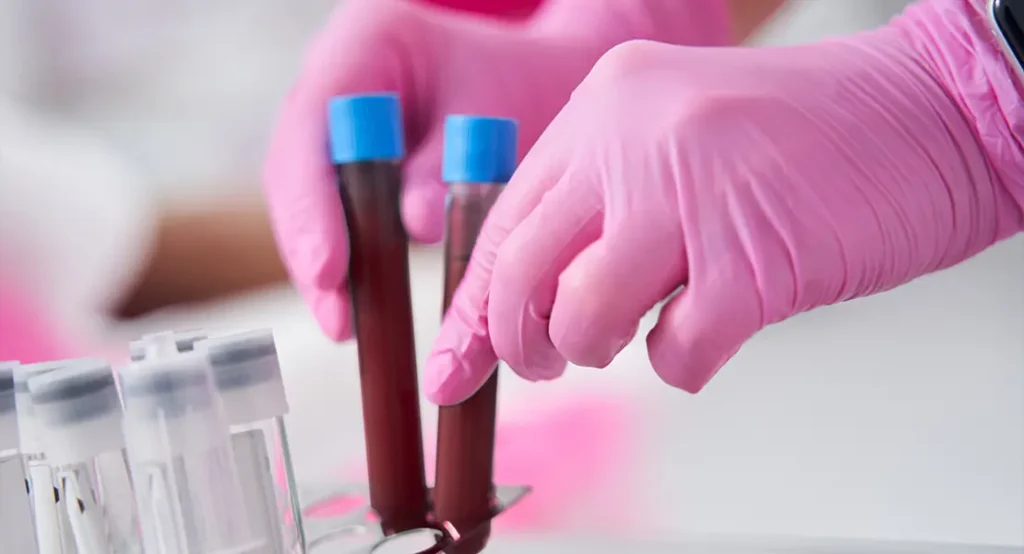If you’ve ever come across the word “immunodermatology” and found yourself wondering what on earth it means, you’re not alone. It’s a bit of a mouthful, isn’t it? But behind the technical term is a fascinating and incredibly important area of dermatology that you might not hear about often, yet it plays a crucial role in treating some of the most stubborn, complex, and misunderstood skin conditions.
So let’s break it all down together. By the end of this article, you’ll have a clear, jargon-free understanding of what immunodermatology is, what immunodermatologists actually do, and how their work stands apart from that of general dermatologists. We’ll also dive into the types of conditions they treat, the tools they use, and when you might need to see one yourself.
What Is Immunodermatology?
Let’s start right at the beginning. Immunodermatology is a subspecialty of dermatology that focuses on the relationship between the skin and the immune system. It’s all about understanding how your body’s defence mechanisms can sometimes go rogue or get confused and end up causing skin problems.
Normally, your immune system is there to protect you—it fights off infections, helps you heal after injury, and keeps harmful invaders like bacteria and viruses in check. But sometimes, things don’t go quite to plan. In certain cases, the immune system mistakenly attacks healthy skin cells, leading to chronic inflammation, rashes, blisters, or even tissue damage. That’s where immunodermatology steps in.
Immunodermatologists study and treat skin conditions that are either caused by immune dysfunction or that trigger abnormal immune responses. These can include autoimmune diseases, inflammatory skin conditions, and rare or complex skin disorders that are hard to pin down using standard dermatological approaches.
What makes this field so unique is that it sits at the crossroads of immunology and dermatology. It requires deep knowledge not just of how the skin works, but also of how the immune system functions—and how the two interact in both healthy and diseased states.
Common Conditions Treated in Immunodermatology
One of the most practical ways to understand what immunodermatologists do is to explore the range of conditions they deal with on a daily basis. While most people associate dermatology with acne or rashes, immunodermatology delves into far more complex issues involving the body’s immune response. These aren’t your run-of-the-mill skin concerns—they are often chronic, systemic, and can affect multiple areas of a patient’s health.
Immunodermatologists are particularly skilled at identifying patterns that may not be obvious to others. Many immune-mediated skin diseases have overlapping symptoms, and what seems like a minor rash may actually be a signal of something deeper. This is why a standard dermatological consultation might not be enough if the immune system is involved. The role of the immunodermatologist is not just to treat the visible signs, but also to investigate the underlying cause and design a treatment plan that controls the immune response.

The conditions they manage can range from rare autoimmune disorders to common inflammatory issues that have become resistant to treatment. Each one comes with its own set of diagnostic and therapeutic challenges. These specialists need to keep up with emerging research, new medications, and ongoing trials in immunotherapy and biologics, as the field is constantly evolving.
In short, immunodermatologists are the go-to experts when the skin becomes a battlefield for immune dysfunction. Their insight is particularly valuable when a patient has already seen several doctors with no clear answers or has been cycling through treatments without any real progress. Their skill set is unique, and their work often brings long-awaited clarity to some of dermatology’s most elusive conditions.
Autoimmune Blistering Diseases
Autoimmune blistering diseases are among the most dramatic and distressing conditions an immunodermatologist may treat. These diseases, such as pemphigus vulgaris and bullous pemphigoid, occur when the immune system mistakenly targets structures within the skin that are essential for holding skin layers together. As a result, the skin can separate and form large, painful blisters that can easily rupture and become infected.
What sets these conditions apart is how rapidly they can progress without the right treatment. Some patients experience symptoms that worsen within days, while others may struggle for months before receiving a proper diagnosis. In many cases, patients are initially misdiagnosed with infections or allergic reactions, which delays effective treatment and increases the risk of complications. Immunodermatologists are trained to recognise subtle clues that suggest a deeper autoimmune process is at work.
Managing these diseases is not just about stopping the blisters; it’s about suppressing the faulty immune signals that cause them in the first place. This often involves immunosuppressive therapy, which must be carefully balanced to control the disease while minimising side effects. Biologic agents and corticosteroids are commonly used, and treatment may span several years depending on disease severity and the patient’s response.
Another key aspect of care is monitoring for secondary complications. Since the skin acts as a barrier, widespread blistering leaves patients vulnerable to infections, fluid loss, and scarring. Immunodermatologists also work closely with other specialists to address systemic symptoms and ensure comprehensive care. Their role is both diagnostic and therapeutic, requiring a deep understanding of immunology, pharmacology, and patient-centred care.
Lupus (Cutaneous and Systemic)
Lupus is a condition that can manifest in a number of ways, but its impact on the skin is often one of the earliest signs. Cutaneous lupus refers specifically to lupus that affects the skin, leading to persistent rashes, discolouration, and heightened sensitivity to sunlight. The most recognisable form is the butterfly-shaped rash across the cheeks and nose, but other patterns can occur across the body, making diagnosis challenging without specialist input.
Systemic lupus erythematosus (SLE), on the other hand, is a more widespread disease that not only affects the skin but also has the potential to involve joints, kidneys, lungs, and the nervous system. The complexity of lupus lies in its variability—no two patients present in exactly the same way. This makes it particularly well suited to the skills of an immunodermatologist, who understands how to interpret both skin and systemic signs within the context of immune dysfunction.
Diagnosis involves a combination of clinical assessment, blood tests to check for specific autoantibodies, and sometimes skin biopsies. Immunodermatologists also pay close attention to triggers, such as ultraviolet light exposure, infections, and hormonal changes, all of which can provoke flare-ups in susceptible individuals. Early detection is key to preventing long-term damage and improving a patient’s quality of life.
Treating lupus is never a one-size-fits-all scenario. Some patients may only need topical treatments and sun protection, while others require systemic immunosuppressants or biologics. Regular follow-up is essential, not only to monitor for side effects of treatment but also to track disease activity and spot early signs of progression. Immunodermatologists bring a level of expertise that ensures every aspect of the condition is carefully considered.
Psoriasis and Psoriatic Arthritis
Psoriasis is one of the most recognisable chronic skin conditions, characterised by red, scaly patches that can appear on the scalp, elbows, knees, and other parts of the body. But beneath the surface, it’s driven by a misfiring immune system that causes skin cells to regenerate far more quickly than normal. This leads to a buildup of cells and the classic plaques associated with the condition.
What many people don’t realise is that psoriasis can extend beyond the skin. Psoriatic arthritis is a related autoimmune disease that affects the joints, causing swelling, stiffness, and pain. It can develop in up to 30% of people with psoriasis, and its symptoms often appear years after the first skin lesions. Immunodermatologists are ideally placed to recognise the early signs of joint involvement and refer patients for further assessment when needed.

Treatment for psoriasis has come a long way in recent years. Traditional methods like coal tar and topical steroids have been supplemented with cutting-edge biologic therapies that target specific immune pathways. These treatments have transformed outcomes for many patients but require careful monitoring due to their impact on immune function. Immunodermatologists stay up to date with the latest drug developments to offer the most effective options.
Living with psoriasis or psoriatic arthritis isn’t just about managing symptoms—it’s about maintaining quality of life, preventing flare-ups, and managing the psychological burden of chronic illness. Immunodermatologists play a vital role in this process by offering holistic care that addresses both the physical and emotional dimensions of the disease.
Atopic Dermatitis and Eczema
Atopic dermatitis, commonly known as eczema, is more than just dry, itchy skin. In its moderate to severe forms, it reflects a deeper imbalance in the immune system that leads to inflammation, skin barrier dysfunction, and increased sensitivity to allergens and irritants. For some patients, especially children, the condition improves with age, but for others, it becomes a chronic, lifelong issue.
When eczema doesn’t respond to standard emollients and corticosteroids, or when it severely disrupts daily life, immunodermatologists step in. They assess whether there’s an underlying immune component that needs addressing—such as overproduction of IgE antibodies or a skewed Th2 immune response. They also consider environmental and genetic factors that may be contributing to the condition’s persistence.
Advanced therapies for atopic dermatitis now include biologic drugs like dupilumab, which can dramatically improve symptoms by targeting specific immune pathways. These treatments aren’t suitable for everyone and often come with risks that need to be managed carefully. Immunodermatologists ensure that patients are appropriately selected, closely monitored, and supported throughout their treatment journey.
Equally important is education and self-management. Patients with severe eczema often need help creating routines around skincare, bathing, allergen avoidance, and stress reduction. Immunodermatologists understand that effective treatment requires more than just prescriptions—it involves empowering patients with the knowledge and tools to take control of their condition.
Vasculitis and Dermatomyositis
Vasculitis is an umbrella term for a group of disorders that cause inflammation in blood vessels, which can reduce blood flow and damage surrounding tissues—including the skin. Symptoms can vary from minor discolouration and rashes to serious ulcers or necrosis. Because these signs are often mistaken for infections or bruising, early recognition by a specialist is crucial to avoid delays in treatment.
Dermatomyositis, meanwhile, is a rare autoimmune condition that affects both the muscles and the skin. Patients may develop a distinctive violet-coloured rash on the eyelids or across the knuckles, along with muscle weakness. It’s a condition that requires urgent evaluation, not only to confirm the diagnosis but also to rule out associated malignancies, which can sometimes accompany it.
The work-up for these conditions is intensive. It may involve skin biopsies, muscle enzyme testing, MRI scans, and even cancer screenings. Immunodermatologists coordinate this comprehensive approach, often working alongside rheumatologists, neurologists, and oncologists to ensure a full understanding of the disease. Their input is essential in choosing the right mix of treatments, which might include corticosteroids, immunosuppressants, or intravenous immunoglobulin (IVIG).
Long-term follow-up is also key. Both vasculitis and dermatomyositis can relapse, and treatment side effects need to be managed carefully. Immunodermatologists guide patients through the ups and downs of these conditions, providing not only clinical care but also emotional reassurance during what can be a very uncertain time.
Who Are Immunodermatologists?
So now that we know what they treat, who are these specialists exactly?
An immunodermatologist is a qualified dermatologist who has completed further training or has extensive experience in diagnosing and managing skin conditions with an immune component. In some cases, they might have dual expertise in immunology and dermatology, but more commonly, they’ve pursued a focused interest in this subspecialty through additional fellowships, research, and clinical practice.
These specialists often work in university hospitals, large teaching institutions, or specialist referral centres. They tend to deal with complex or treatment-resistant cases and often collaborate with other disciplines like rheumatology, immunology, and pathology to build a full picture of a patient’s condition.
It’s also not unusual to find immunodermatologists involved in cutting-edge research. Because many of the diseases they manage are still poorly understood, there’s a constant drive to explore new treatments, discover better diagnostic tools, and deepen our understanding of how the immune system behaves in skin disease.
How Do Immunodermatologists Differ from General Dermatologists?
Right, so now we get to the question that probably brought you here in the first place: what exactly makes an immunodermatologist different from a general dermatologist? On the surface, it might seem like a subtle distinction, but when you dig deeper, the differences are quite significant.
Specialisation and Scope
A general dermatologist is trained to diagnose and treat a broad spectrum of skin, hair, and nail conditions. This includes everything from acne and rosacea to skin cancer and fungal infections. They are generalists in the field of skin health.
An immunodermatologist, however, narrows the focus specifically to immune-related conditions. They often see fewer patients, but those patients typically have more complex and persistent skin issues that don’t respond to standard therapies. Think of it like this: if dermatology were a hospital, the immunodermatologist would be working in the intensive care unit for the skin.
Diagnostic Approach
Most dermatologists are comfortable diagnosing common conditions with a simple visual inspection and a patient history. And to be fair, that’s often enough.

But immunodermatologists frequently rely on more advanced tools—skin biopsies, immunofluorescence microscopy, molecular tests, and detailed bloodwork. They also keep a close eye on systemic symptoms, as many immune-mediated skin disorders don’t just affect the skin. Their diagnostic process is often more investigative and detailed.
Treatment Strategies
General dermatologists tend to focus on topical treatments, oral medications, and procedural techniques like cryotherapy or laser therapy.
Immunodermatologists, on the other hand, work heavily with immunosuppressants, corticosteroids, biologic agents, and other immune-modifying drugs. Their treatment plans are often longer-term and involve more risk–benefit analysis, ongoing monitoring, and collaboration with other specialties.
When Should You See an Immunodermatologist?
Great question—and one that a lot of patients ask. The truth is, most skin conditions can be effectively treated by a general dermatologist. But there are some red flags that might suggest you need a more specialised approach.
You’ve Been Diagnosed with an Autoimmune or Inflammatory Disease
If you already have a condition like lupus, dermatomyositis, or vasculitis, and it’s affecting your skin, it’s worth seeing an immunodermatologist. They’re equipped to manage the skin-specific symptoms and can work alongside your other doctors to ensure a holistic treatment plan.
Your Skin Condition Isn’t Responding to Standard Treatments
If you’ve tried the usual prescriptions and over-the-counter solutions and nothing seems to work—or worse, things are getting worse—it might be time for a second opinion from someone with immunodermatology expertise. They’ll dig deeper and look for hidden immune factors that could be contributing to the issue.
You’re Being Considered for Biologic or Immunosuppressive Therapy
These powerful treatments aren’t usually prescribed without good reason. If your dermatologist is suggesting biologic injections or immunosuppressive drugs, getting input from an immunodermatologist can provide added insight and safety.
The Tools of the Trade: How Immunodermatologists Diagnose Conditions
Immunodermatologists often have to play detective, and they use a pretty advanced toolbox to do it. Let’s look at a few techniques they commonly rely on.
Direct Immunofluorescence (DIF)
This is one of their go-to methods for diagnosing autoimmune blistering diseases. A small sample of skin is taken and treated with fluorescent dyes that bind to specific antibodies. Under a special microscope, the pattern of fluorescence can reveal exactly what the immune system is attacking.
Skin Biopsy with Special Stains
Standard dermatologists often do biopsies, but immunodermatologists may use additional staining methods to identify immune cells, immune complexes, or other tell-tale signs of immune-mediated activity.
Blood Tests for Autoantibodies
Some immune-mediated skin diseases leave behind clues in the bloodstream. Immunodermatologists might order tests for ANA (antinuclear antibodies), ENA panels, or other specific antibodies that help confirm or rule out diseases like lupus or dermatomyositis.

Collaboration with Immunologists and Rheumatologists
In particularly tricky cases, immunodermatologists don’t go it alone. They’ll often collaborate with other specialists to get a full picture of what’s going on. This team-based approach is vital for patients with systemic autoimmune diseases.
What Does the Future Hold for Immunodermatology?
Immunodermatology is one of the fastest evolving areas in skin medicine. Over the last decade, we’ve seen enormous progress—particularly with biologics. These targeted therapies are revolutionising the treatment of conditions like psoriasis and eczema, offering relief to people who’ve struggled for years.
But that’s just the beginning. New research is looking at how gut health affects skin inflammation, how the microbiome could be manipulated to reduce flare-ups, and how gene therapy might one day prevent autoimmune skin diseases altogether.
There’s also growing interest in personalised medicine—using genetic and immunological profiling to tailor treatment plans to individual patients. It’s an exciting time to be in this field, and for patients, it means better, safer, and more effective care is on the horizon.
Final Thoughts
So, there you have it—a deep dive into the world of immunodermatology. It’s a fascinating, specialised field that tackles some of the most challenging skin conditions out there. If you’ve ever felt frustrated by a diagnosis that doesn’t quite make sense, or a treatment that just isn’t working, it might be worth exploring whether an immune component is at play.
Immunodermatologists aren’t just skin experts—they’re immune system investigators, chronic disease managers, and often, the last resort when standard dermatological care falls short. Their work sits right at the cutting edge of medicine, where science meets compassion and complexity meets clarity.
If you feel that you or someone close to you could benefit from seeing a specialist, you’re very welcome to get in touch with us at The London Dermatology Centre to arrange a consultation with one of our expert dermatologists.
And now, hopefully, you’ve got a much better understanding of what they do—and whether they might be able to help you or someone you care about.
